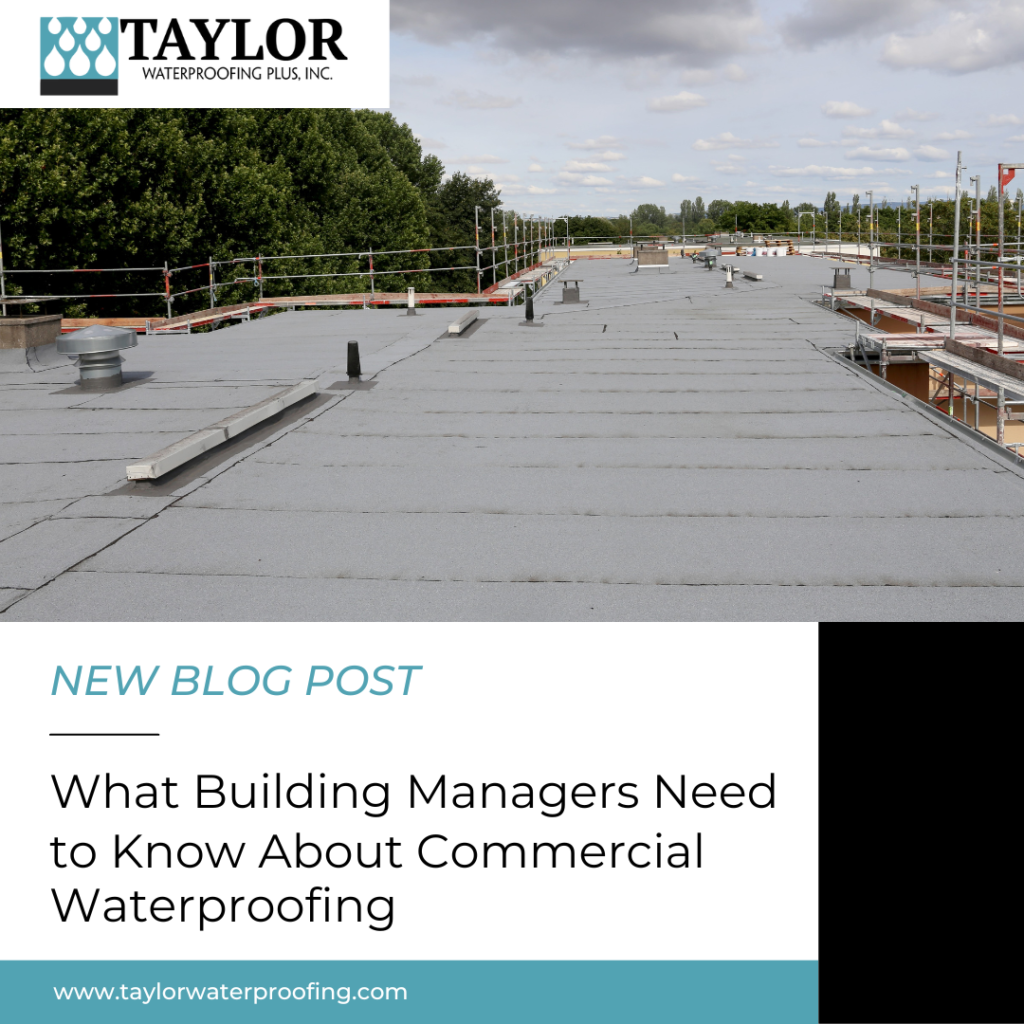If you own or manage a commercial building, your schedule is probably packed with a long to-do list. One thing that sometimes gets overlooked is waterproofing and inspections. This is a mistake when trying to protect and maintain the building. Being proactive with waterproofing will save you money in the long run on costly repairs. Here are some important things that building managers need to know about commercial waterproofing.
Why is Commercial Waterproofing Important?
Water damage not only causes cosmetic damage but can be detrimental to the health of the building occupants and cause structural damage to your building. If left untreated, water damage can cause mold and mildew growth in the building, causing health concerns. Waterproofing before these damages occur can ensure the longevity of your building and save you on repairs.
What Causes Leaks or Other Water Damage?
There are many places where water damage and leaks can happen. Water can leak out of pipes, from the roof, and even infiltrate the walls and interior of the building through concrete. A professional will assess the damage and determine the cause.
Using the Right Sealant
There are many different types of sealants and coatings that are made from different materials, such as silicone, acrylic, and polyurethane. Some sealants go on clear or glossy, while some act more as paint. Others have a thicker consistency for filling in gaps and joints. The one you decide on will be based on your waterproofing goals, the material you’re planning on waterproofing, and the aesthetic you are trying to achieve. Our team can give you all your options and help you pick what material is right for your project and building.
Concrete Needs to be Waterproofed
Whether it’s the concrete of the foundation, in the parking garage, or the floors inside of your building, concrete needs to be waterproofed. Water can seep into the pores of the concrete and cause the metal reinforcement to corrode or cause water damage to the surrounding areas. There are many options for waterproofing concrete and depends on where the concrete is located.
Inspections are Key
When it comes to waterproofing, inspections will help you stay proactive. A professional inspection will pinpoint where there is damage or where there could potentially be damage in the future and assess if any materials or sealants need to be replaced. This will prevent water intrusion and stop any leaks from getting worse.
Our team can help building managers and owners with any of the above and more. Your building will be in good hands with our trained and experienced waterproofing professionals. Contact us here to learn more about waterproofing your building.


